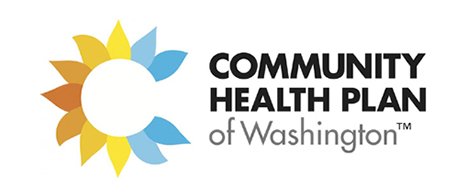TMS for Major Depressive Disorder
Deep TMS Therapy for Depression in University Place, WA.
Major Depressive Disorder
Understanding Major Depressive Disorder
Major Depressive Disorder (MDD) is more than feeling sad—it’s a serious and often disabling condition that affects how a person thinks, feels, and functions day to day. Symptoms may include persistent sadness, lack of motivation, fatigue, feelings of worthlessness, difficulty concentrating, or loss of interest in once-enjoyed activities.
For some, MDD is responsive to therapy or medication. But for millions, those treatments aren’t enough.

How Deep TMS Therapy for Depression Works
Deep Transcranial Magnetic Stimulation (Deep TMS) is an FDA-cleared, non-invasive treatment that uses gentle magnetic pulses to activate areas of the brain linked to mood regulation. Using BrainsWay’s patented H-Coil technology, Deep TMS reaches deeper and broader brain regions than traditional TMS systems.
This allows us to effectively target the prefrontal cortex, a brain region commonly underactive in individuals with depression and help restore balanced neural activity.
Deep TMS Benefits:
No systemic side effects.
Sessions lasting 3-20 minutes.
No sedation, anesthesia, or downtime.
Covered by most major private insurance providers as well as Medicare and Medicaid.
Why Choose Deep TMS Over Medication Alone?
Deep TMS therapy for treatment-resistant depression offers new hope without the burden of long-term
side effects. While antidepressants may take weeks to work (and sometimes don’t work at all), Deep TMS
has shown high rates of both response and remission, even in patients who haven’t benefited from multiple medications.
Deep TMS vs. Medication:
No weight gain
No sexual dysfunction
No cognitive fog or memory issues
Often works when medications haven’t.
-
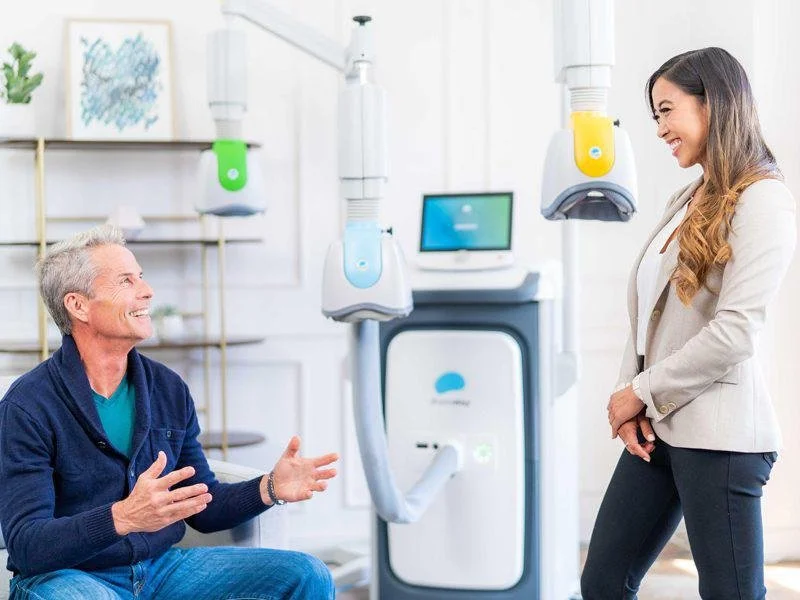
What to Expect During Your TMS Journey
Each Deep TMS session is easy and comfortable. You’ll be seated in a quiet room while a technician places a padded helmet over your head. You may feel a tapping sensation as the treatment begins—this is completely normal.
Typical treatment plan:
> 5 sessions per week
> Each session lasts about 20 minutes
> Acute phase: 4–6 weeks
Optional continuation phase based on response There’s no need for recovery time—most patients return to work or daily activities immediately after their session.
-
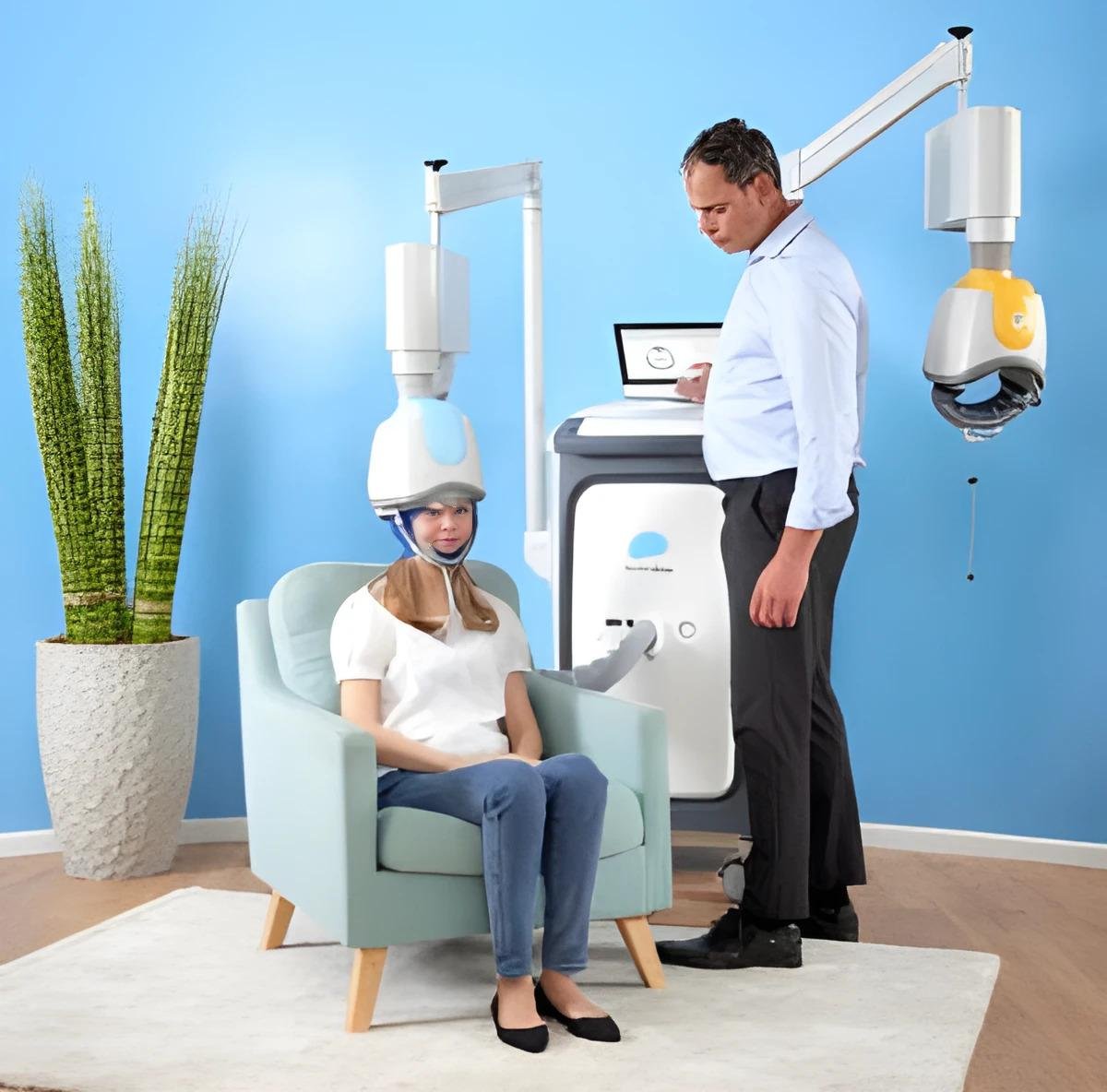
Is TMS Safe? Are There Side Effects?
Yes—Deep TMS is both safe and well-tolerated. It does not involve medication or surgery and is associated with only mild, short-lived side effects.
Common side effects may include:
Mild scalp discomfort at the treatment site
Temporary headache during or shortly after sessions
Most of these effects fade as treatment continues. Unlike medications, Deep TMS does not cause systemic side effects like drowsiness, digestive issues, or emotional blunting.
-
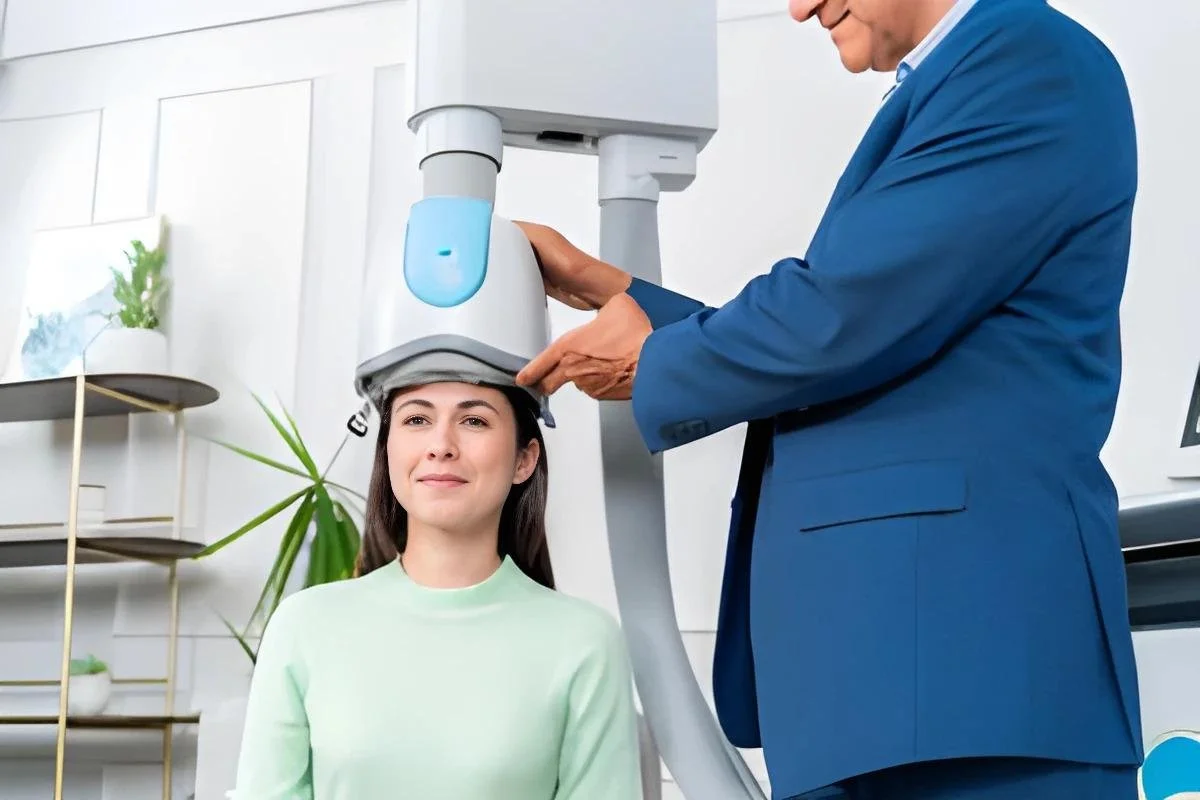
Does TMS Really Work?
Yes. Deep TMS has been studied in large, randomized controlled trials and is backed by over a decade of psychiatric research. It has been shown to significantly reduce depressive symptoms and improve daily functioning—even in patients who’ve failed two or more prior antidepressants.
Clinical Outcomes (based on major studies):
60% of patients experience a measurable improvement in symptoms
1 in 3 patients achieve full remission
Symptom relief often begins within the first few weeks of treatment
Our clinic has seen firsthand how Deep TMS can transform lives.
-
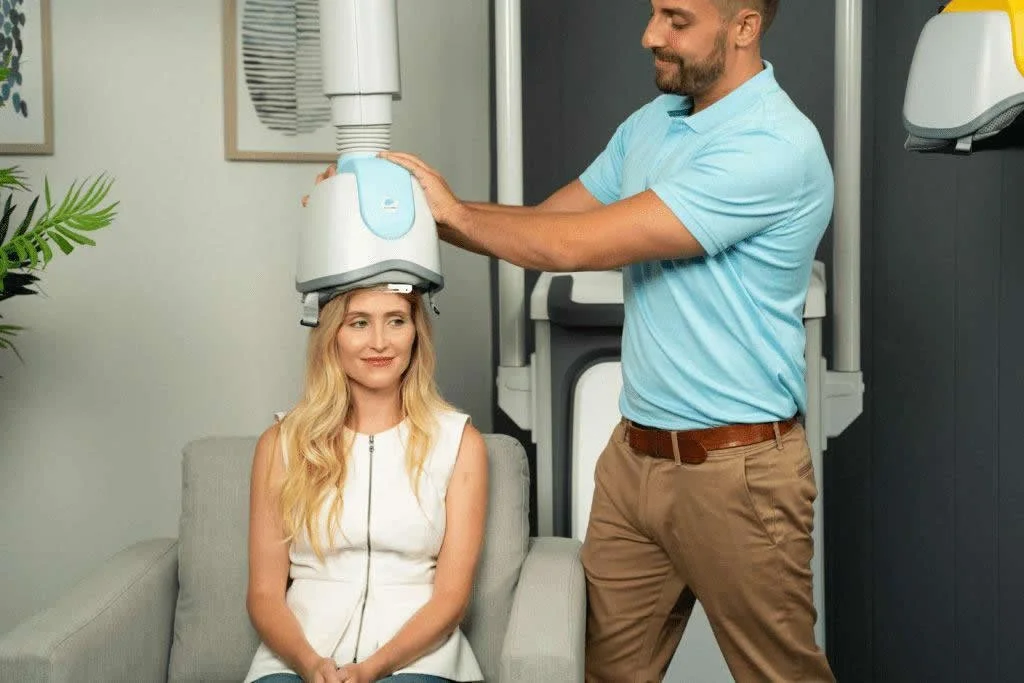
Am I a Candidate for TMS?
If you’ve tried multiple medications or therapy for depression without meaningful relief, you may be an ideal candidate for Deep TMS. Most insurance providers require documentation of prior treatment attempts before approving TMS, which our team can help you navigate.
You may qualify if you:
Are 18 years or older
Have been diagnosed with Major Depressive Disorder
Have not responded well to at least two antidepressants
Are you looking for a drug-free treatment option
Want to avoid or reduce medication side effects
What Our Patients Are Saying
Real stories from people who found hope and healing with TMS therapy in Greater Tacoma.
Empower your Mental Health Journey
If you don’t see your plan listed, contact us—we’ll help you explore your options.
FAQs ( Frequently Asked Questions )
-
A non-invasive, FDA-cleared treatment that helps relieve symptoms of depression, anxiety, and OCD—without medication or side effects.
-
Deep transcranial magnetic stimulation (Deep TMS™), is a noninvasive treatment process that directly stimulates brain structures associated with mental health conditions. This is done utilizing electromagnetic fields generated by our patented H-coil to safely reach deeper brain structures and influence their neural activity.
-
Deep TMS is a noninvasive treatment course proven to offer symptom relief for various mental health conditions. Eligibility for Deep TMS treatment is determined by a person’s insurance provider. As Deep TMS is safe to combine with other forms of therapy, many insurance providers consider those currently undergoing medical treatment or psychotherapy, as well as treatment-resistant clients, to be eligible for Deep TMS treatment.
-
Numerous clinical studies in reputable peer-reviewed journals have found that BrainsWay’s Deep TMS therapy is successful in alleviating symptoms of mental health conditions and offering patients relief.
-
BrainsWay Deep TMS has been tested in over 60 clinical studies, for various clinical indications, in leading institutions worldwide. The FDA has cleared BrainsWay Deep TMS therapy for treatment-resistant depression and it is currently available in the U.S., Europe, South America, and Asia.
Deep TMS is also indicated by the FDA as an intended adjunct treatment for adult patients suffering from Obsessive-Compulsive Disorder (OCD) FDA De Novo, and for the treatment of short-term smoking cessation in adults, 510(k).
-
BrainsWay’s Deep TMS treatment is normally spread out over four-to-six weeks. During this time, patients come in for sessions five times per week and each of these sessions last about 20 minutes. Depending on the mental health condition being treated, there may be additional maintenance sessions after the initial course of treatment.
-
Deep TMS treatment utilizes BrainsWay’s patented H-Coil technology to regulate brain activity and improve patients’ mental health and well-being. During the procedure, a helmet holding the H-coil is fitted over the patient’s head before sending magnetic pulses to targeted areas of the brain. Deep TMS is a noninvasive procedure where patients can catch up on their reading or social media during sessions. Patients will experience a light tapping sensation on their scalp during the treatment. Each session takes about 20 minutes, after which patients can drive themselves and go about their daily routine.
-
Typically, patients hear a tapping sound and feel a tapping sensation in the head area during BrainsWay Deep TMS therapy session. To diminish the sound, the patient is provided with earplugs.
Some patients experience temporary, mild pain or discomfort in the area of the treatment site, which occurs during the treatment session. This typically occurs only during the first week BrainsWay Deep TMS treatment. Other side effects may include muscle twitching and jaw pain.
-
Deep TMS treatment is safe to combine with any sort of medication or psychotherapy. Deep TMS is both noninvasive and found to be effective in treating a variety of mental health conditions, in combination with other forms of therapy or as a standalone treatment.
-
Deep TMS coverage depends on the treatment type, geographical location, and insurance plan. In the United States, BrainsWay’s Deep TMS therapy is covered by Medicare and nearly all major private insurers to treat major depressive disorder (MDD). BrainsWay is actively seeking coverage for obsessive-compulsive disorder (OCD) treatment and smoking cessation, which, like MDD, are FDA-cleared.
Outside of the United States, the cost to patients for TMS treatment is variable, depending on the specific country and health coverage structure. Speak to your mental health provider or health insurer to better understand the costs that you would incur.
Schedule an Appointment
Need Help? Please Fill out some info and we will be in touch shortly.
We can’t wait to hear from you!






